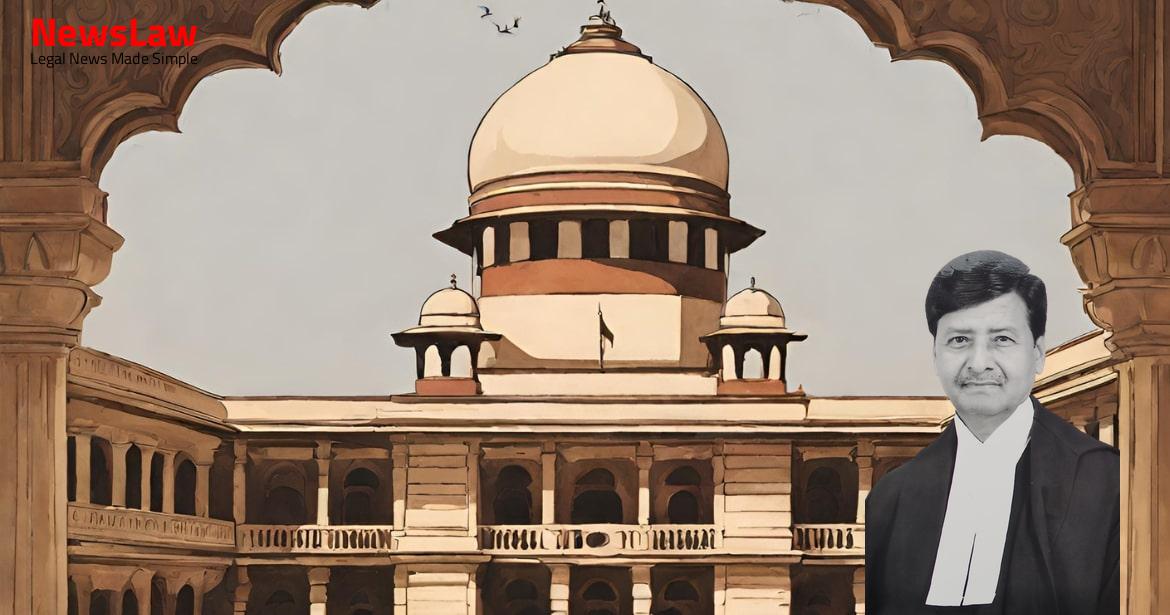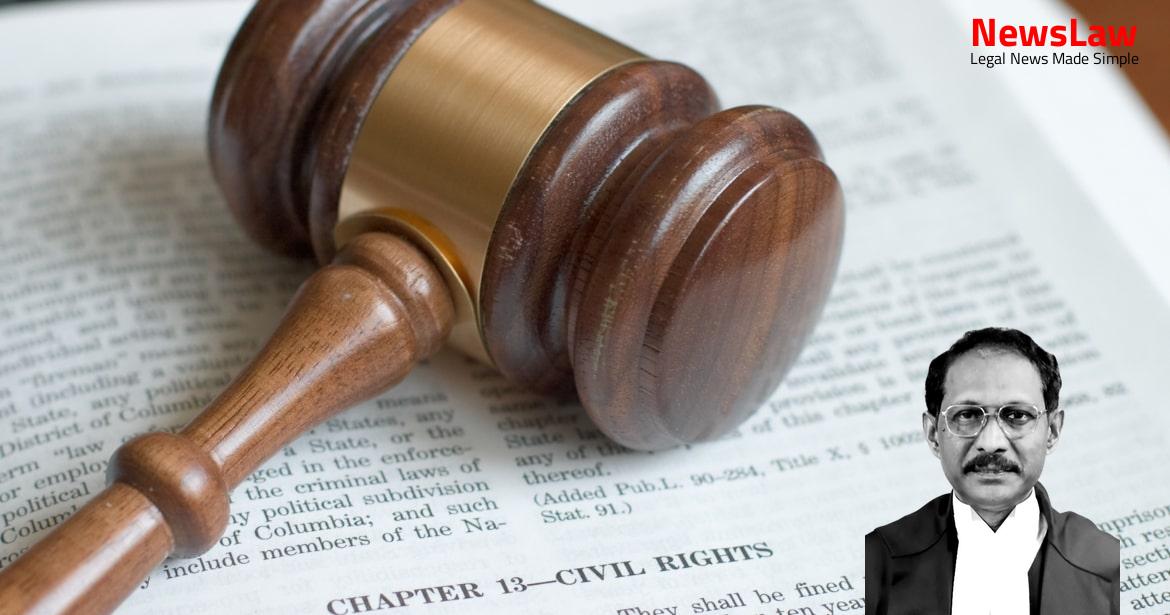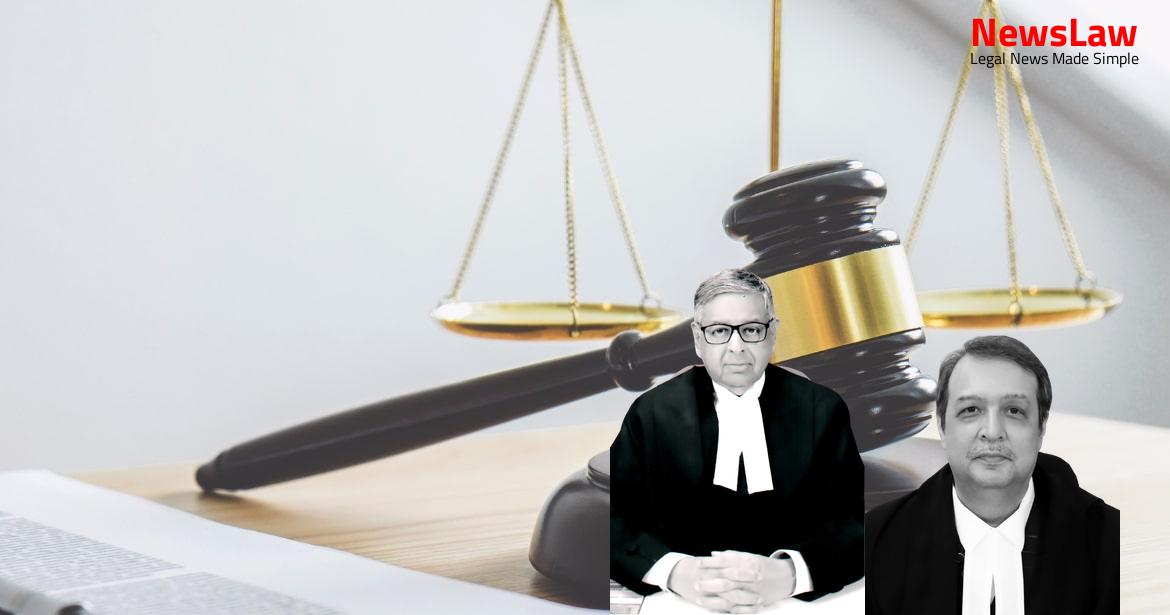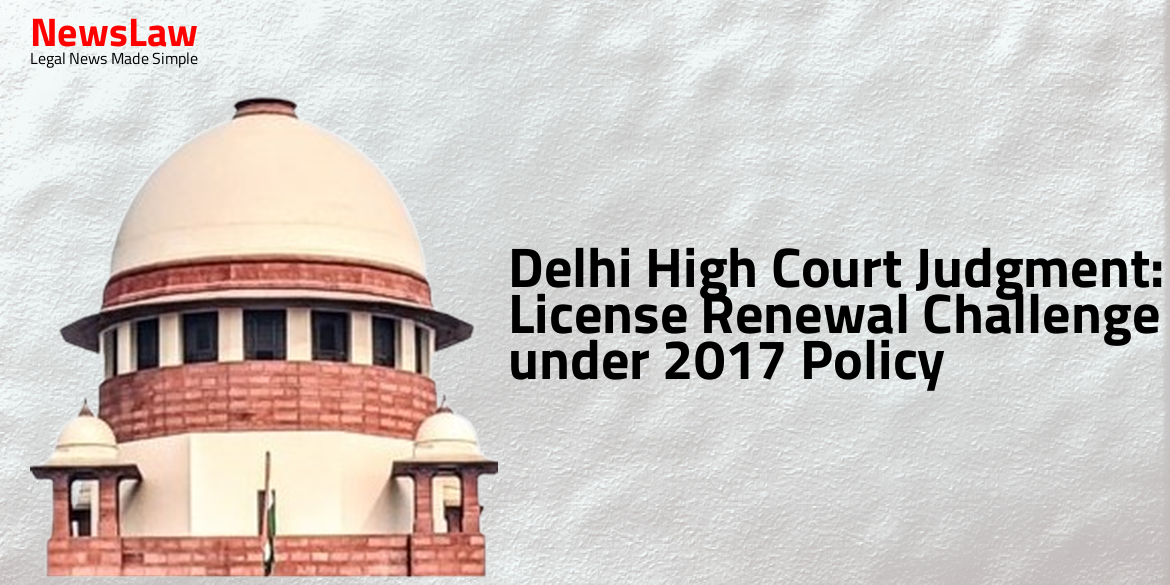The Supreme Court of India recently delivered a significant judgment in the case of Ram Vir Sharma vs. State Government. The case pertained to the extension of retirement age for government employees, specifically focusing on the rights of Ram Vir Sharma in continuing his service until the age of 65. Let’s delve into the details of this crucial legal battle.
Facts
- The Division Bench of the High Court dismissed the Writ Petition on the grounds that the notification increasing the age of superannuation to 65 years should be ignored.
- The appellant, a teacher at a medical college, was entitled to the benefits of the notification issued during his extended service until 30 June 2015.
- The High Court found the notification contrary to Rule 56(a) of the Fundamental Rules governing government servants’ superannuation age.
- The appellant sought review based on a prior judgment and argued that the notification should be applicable from its issuance date of 6 February 2015.
- The High Court’s judgment was challenged, stating the appellant should benefit from the increased retirement age announced while he was in service.
- Rule 26 of the Rules of 1990 dictates that matters not specified would be governed by rules applicable to government servants.
- The notification enhancing the superannuation age to 65 years was deemed a special order falling under Rule 26.
- The appellant’s extended service was due to granting him the benefit of an earlier Government Order extending his service until 30 June 2015.
- The appellant, a Professor and Head of Department of Cardiology at a medical college in Uttar Pradesh, filed a petition seeking to continue in service until the age of 65.
- Government decisions in 2012 and 2015 granted him extensions to his retirement age based on the end of session benefit.
- The State Government opposed the extension of service until 65, arguing that the appellant had already retired at 60.
- Dispute arose due to conflicting regulations regarding retirement age in medical colleges.
- The appellant relied on a 2015 notification that extended the retirement age to 65 for medical teachers.
- The High Court rejected the appellant’s claim, leading to the appeal.
- The case revolves around the interpretation of rules governing retirement age and extensions for medical college professors.
- The appellant claims entitlement to the extended retirement age and continues to seek reinstatement until 65.
- The High Court’s decision is under challenge in the appeal.
Arguments
- The appellant, Ram Vir Sharma, would be entitled to all benefits arising before the date of 13 August 2014, including the enhancement in the age of superannuation to 65 years.
- The Government Order (GO) dated 19 November 2012 extended the end of session benefit to medical teachers like Ram Vir Sharma.
- The appellant’s continuance until 30 June 2015, as per the GO dated 19 November 2012, was to avoid dislocation due to retirement falling in the midst of the session.
- The notification dated 6 February 2015 extending the age of superannuation may not apply to Ram Vir Sharma, who had attained retirement age on 13 August 2014.
- A distinction was noted between Regulation 21 and the GO dated 19 November 2012 in terms of extension of service and retirement in the context of the Intermediate Education Act of 1921.
Also Read: CRPF Act: Validity of Rule 27 for Compulsory Retirement – Case of Head Constable vs. CRPF
Analysis
- Rule 56(a) states that every government servant must retire at the age of 60.
- The retirement should happen on the last day of the month in which the individual turns 60.
- Some exceptions may apply as provided in the rule.
- The decision in Ram Vir Sharma is distinguishable from the case at hand.
- The decision in Hema Pathak has no bearing on the construction of the Government Order dated 19 November 2012.
- The decision in Dr Rajendra Chaudhary dealt with the validity of the deletion of the upper age limit for direct recruitment under a notification dated 6 February 2015.
- The employee must not be deemed to have been superannuated on the date of attaining the age of 60 years but would be deemed to have been superannuated only on 30 June following the date on which the age of 60 years was attained.
- The decision in Ram Vir Sharma is distinguishable.
- The Division Bench of the High Court held that the extension of service was for all purposes a part of service and the incumbent is treated to have retired at the end of the session in Dr Rajendra Chaudhary’s case.
- The decision in Hema Pathak considered whether a teacher was rightly promoted by the Committee of Management on 18 May 2013.
- The decision in Dr Rajendra Chaudhary is distinguishable from this case as well as the decision in Rajendra Chaudhary, affirmed by the Court.
- The issue in Dr Rajendra Chaudhary’s case was distinct from the central point in the present case.
- The High Court held that the age of retirement of 60 years prescribed in Rule 56(a) could not be altered by the notification dated 6 February 2015.
- The notification dated 6 February 2015 postulates that the grant of a session ending benefit is subject to the fulfillment of stipulated conditions, including the work and conduct of the employee being satisfactory.
- The notification dated 6 February 2015 increasing the age of retirement for medical teachers from 60 to 65 years is prospective and would not apply to teachers who had already crossed the age of superannuation as it stood prior to the notification.
- The extension of service to the faculty of Government Medical Colleges was subject to fulfilling stipulated conditions and was not automatic.
- The end of session benefit for medical teachers in Government Medical Colleges would flow only upon fulfilling the specified conditions.
- The ruling indicated that the age of retirement could not be extended automatically and the employee must meet certain conditions for the extension.
- The State Government clarified that any benefit due before retirement, including promotions, could not be denied unless there was a provision stating otherwise.
- The judgement emphasized that the extension of service for medical teachers was granted with specific conditions and was not a right that automatically applied.
- The ruling highlighted the importance of fulfilling stipulated conditions for the grant of session-ending benefits to medical teachers in Government Medical Colleges.
- The appellant had already attained the age of superannuation under the existing rules
- Appellant was allowed to continue until the end of the session
- Question of entitlement to enhanced retirement age under the 6 February 2015 notification arises
- Issue revolves around whether the appellant can benefit from the enhanced retirement age provision
Also Read: DAMEPL vs. DMRC: Curative Petition and Arbitral Award Restoration
Decision
- There is no merit in the appeals and they shall be dismissed.
- The appellant, who was continuing until the end of the session after retirement, is entitled to have terminal benefits computed and released within two months.
- The appellant, at the age of 60 years, was not entitled to the enhanced retirement age of 65 years as per the notification dated 6 February 2015.
Case Title: CHANDRA MOHAN VARMA Vs. STATE OF UTTAR PRADESH (2020 INSC 70)
Case Number: C.A. No.-000350-000351 / 2020



